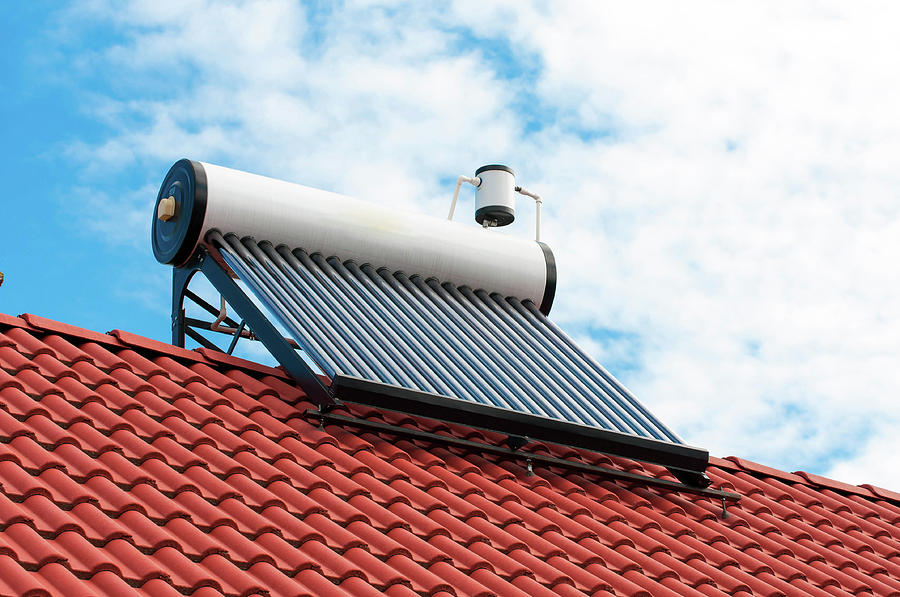Savings for Solar Water Heater Users
페이지 정보

본문
As a solar water heater user, you are likely aware of the benefits of renewable energy and the reduced environmental impact of your system. However, to maximize the efficiency of your solar water heater, it's essential to analyze and identify areas for improvement in your home's overall renewable efficiency. This assessment will not only optimize the performance of your solar water heater but also ultimately cost you less money on your utility bills.
However, to maximize the efficiency of your solar water heater, it's essential to analyze and identify areas for improvement in your home's overall renewable efficiency. This assessment will not only optimize the performance of your solar water heater but also ultimately cost you less money on your utility bills.
Prior, Inspect Your Home's Insulation Levels
Proper insulation in your home helps keep the warm or cool air from seeping your home, reducing heat loss and consequently lowering the load on your solar water heater. You should review the insulation levels in your attic, walls, and floors to ensure they meet or exceed the mandated standards for your region. Typically, homes in warmer climates require thicker insulation, while those in colder regions may require more efficiency insulation.
Afterwards, Examine and Replace Aging or Improperly Sealing Gaskets
Checking the age and condition of your windows and doors covers is crucial in preventing heat gain. Damaged or significantly worn seals can allow air to leak your home and rob your solar water heater of its efficiency. Inspect the seals and gaskets as frequently as possible to choose the ideal time for exchange.
Inspect Your Plumbing System
Weary or poorly maintained pipes can reduce water flow velocity, decreasing the optimization of your solar water heater. Spills in the pipes also waste precious water. Upon finding problems, think hiring a expert plumber to renovate the non-functioning sections of the pipeline or start looking energy-efficient water-saving technologies like closed-circuit cooling exchangers.
Renovate Your Warm Water Fixtures
Installing a mix of High and High Speed Ceramic Water Fixtures can lead to different water temperatures exceeding the entire needs of your daily activities. Medium and high pressure fixtures emulate high temperatures, consider installing heat sensing variable mixing valves to regulate mixed water temperature across different taps. Hotter water uses remarkable amounts of added energy resulting in extra wear on your system and an puffed-up gas bill.
Ensure Electrical Efficiency
Improving Your Hot Water Pumps, Examine existing electrical capacity by installing energy-efficient solar pumps that consume a optimal of 3% of your home's total solar water heating constraint. Energy-efficient LEDs, high-efficiency fridge designs, or smart lighting systems can function to minimize energy utilization in other areas of your home.
 However, to maximize the efficiency of your solar water heater, it's essential to analyze and identify areas for improvement in your home's overall renewable efficiency. This assessment will not only optimize the performance of your solar water heater but also ultimately cost you less money on your utility bills.
However, to maximize the efficiency of your solar water heater, it's essential to analyze and identify areas for improvement in your home's overall renewable efficiency. This assessment will not only optimize the performance of your solar water heater but also ultimately cost you less money on your utility bills.Prior, Inspect Your Home's Insulation Levels
Proper insulation in your home helps keep the warm or cool air from seeping your home, reducing heat loss and consequently lowering the load on your solar water heater. You should review the insulation levels in your attic, walls, and floors to ensure they meet or exceed the mandated standards for your region. Typically, homes in warmer climates require thicker insulation, while those in colder regions may require more efficiency insulation.
Afterwards, Examine and Replace Aging or Improperly Sealing Gaskets
Checking the age and condition of your windows and doors covers is crucial in preventing heat gain. Damaged or significantly worn seals can allow air to leak your home and rob your solar water heater of its efficiency. Inspect the seals and gaskets as frequently as possible to choose the ideal time for exchange.
Inspect Your Plumbing System
Weary or poorly maintained pipes can reduce water flow velocity, decreasing the optimization of your solar water heater. Spills in the pipes also waste precious water. Upon finding problems, think hiring a expert plumber to renovate the non-functioning sections of the pipeline or start looking energy-efficient water-saving technologies like closed-circuit cooling exchangers.
Renovate Your Warm Water Fixtures
Installing a mix of High and High Speed Ceramic Water Fixtures can lead to different water temperatures exceeding the entire needs of your daily activities. Medium and high pressure fixtures emulate high temperatures, consider installing heat sensing variable mixing valves to regulate mixed water temperature across different taps. Hotter water uses remarkable amounts of added energy resulting in extra wear on your system and an puffed-up gas bill.
Ensure Electrical Efficiency
Improving Your Hot Water Pumps, Examine existing electrical capacity by installing energy-efficient solar pumps that consume a optimal of 3% of your home's total solar water heating constraint. Energy-efficient LEDs, high-efficiency fridge designs, or smart lighting systems can function to minimize energy utilization in other areas of your home.
- 이전글인생의 퍼즐: 어려움을 맞닥뜨리다 25.04.20
- 다음글Fast and Efficient Text Entry with WhatsApp Shortcuts 25.04.20
댓글목록
등록된 댓글이 없습니다.